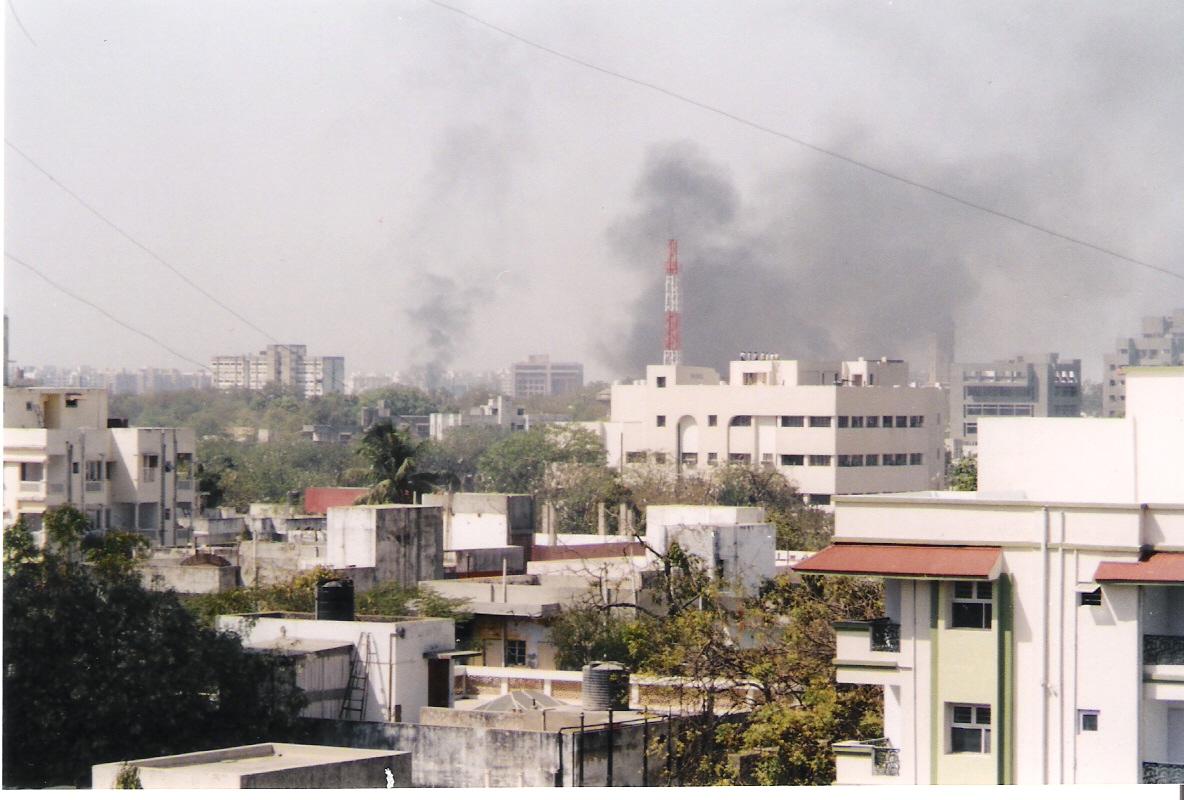Gujarat Court acquits 35 people in four cases of 'spontaneous' post Godhra riots

Riots in Gujarat were spontaneous; not planned as described by pseudo-secular persons, said the court.
A local court in Gujarat has set free 35 people in four cases related to rioting and murder during the 2002 conflagration, ruing the fact that the accused who included doctors, professors, teachers and businessmen, had to unnecessarily face prolonged trial due to uproar of pseudo-secular media and organisations in "spontaneous" post-Godhra riots.
Additional Sessions Judge, Panchmahals at Halol, Harsh Balkrishna Trivedi acquitted 35 accused of all the charges, directing each of them to furnish a bail bond of Rs 10,000 with surety to appear before the higher court as and when appeal court issues notice.
The judgement passed on June 12 noted that prosecution witnesses, particularly, Muslim witnesses who were alleged sufferers of riots had given widely divergent versions of the riots.
"In case of communal riots a large number of persons is generally involved and the evidence is often entirely of a partisan character. There is moreover, great danger of innocent persons being implicated along with the guilty, owing to the tendency of the parties in such cases to try to implicate falsely as many of their enemies as they can. Therefore possibility of innocent persons being falsely implicated, should always be borne in mind by the Judge," the court said.
It also pointed out that the testimonies of almost all witnesses were revealed to be wholly unreliable and every time they (witnesses) introduced a new story.
According to the prosecution on February 28, 2002, a Hindu violent mob killed three Muslims namely (1) Ruhul Amin Padva (2) Harun Abdulsattar Tasiya and (3) Yusuf (Isub) Ibrahim Shaikh. Each of the deceased was killed at three different places.
The accused faced trial for the offences of murder and rioting, arson, and unlawful assembly, among others.
“Communal riots in India have persisted for long times and are usually caused by the trifle dispute and intolerance, manipulation of religious artefacts, intrusion by others on festivals, conflicting prayer time, a dispute over places of worship, intermarriage, desecration of holy places, sexual offences rumours on the issue of encroachments or the presence of anti-India agents,” the court said.
Going into the background of the riots, the judge said coach S-6 of the Sabarmati Express train was burnt at Godhra railway station killing 59 passengers on board.
"Peace loving Gujarati people was shocked and became anguished by this incident. We have seen that then pseudo -secular media and politicians rubbed salt into wound of anguished people. Report says that 16 of Gujarat's 24 Districts were engulfed in communal rioting - post Godhra riots. Nowhere mobs were less than 2-3000, more. Often they were more than 5-10,000 strong. There were spontaneous set of riots in Gujarat. They were not planned one, as described by pseudo-secular persons," the court noted.
However, the court highlighted that due to the immense pressure by Pseudo-Secular politician and media, the police implicated prominent Hindu persons in the matter.
"In the case on hand, the police has unnecessarily implicated accused in alleged commission of crime. Police implicated prominent Hindu persons of the area Doctor, Professor, Teacher, Businessmen, Panchayat official etc hails to of a Hindu community. Due to uproar of pseudo-secular media and organisation, the accused persons have unnecessarily to face prolonged trial," the court said.
The judge also cited educationist K M Munshi saying, “If every time there is inter-communal conflict, the majority is blamed regardless of merits of the question. The spring of traditional tolerance will dry up,” while noting that the prosecution failed to prove the cases.
In the cases, 52 accused were initially roped in, however, proceedings against 17 of them were abated after their deaths.
